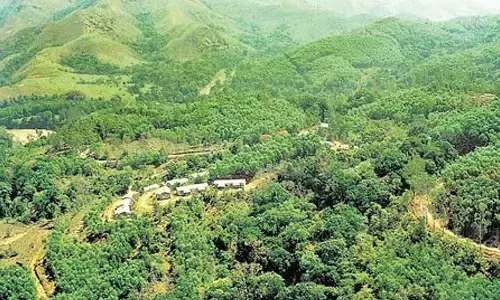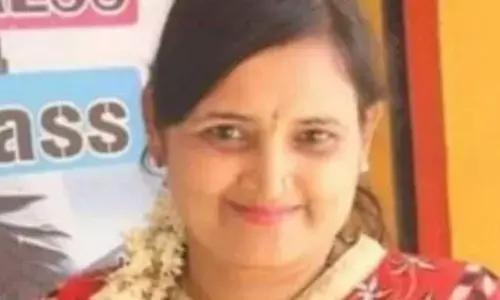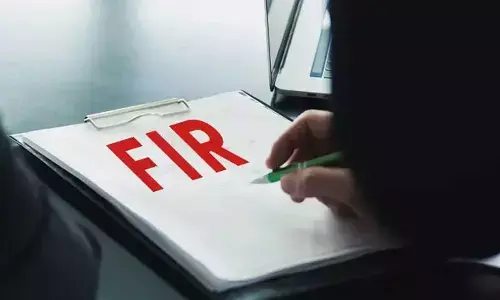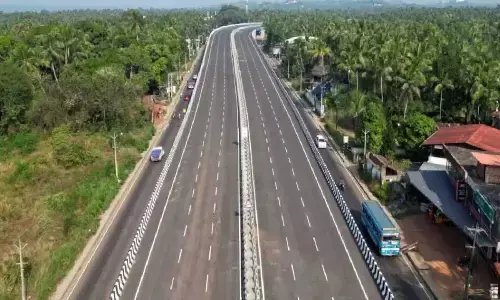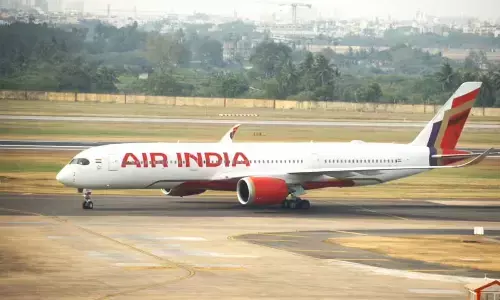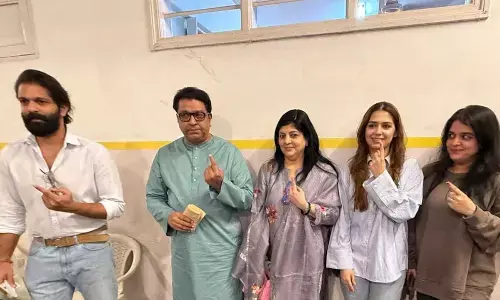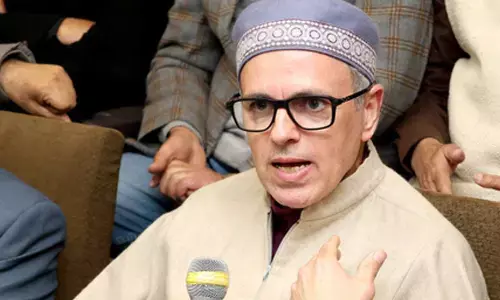Pranab Mukherjee’s Viewpoint with Bhupendra Chaubey
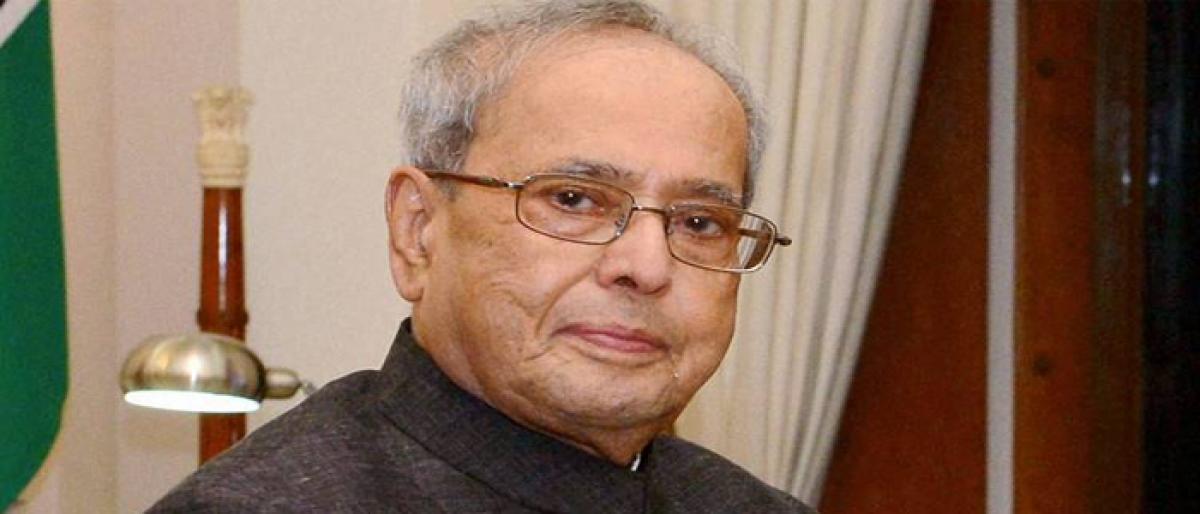
Even after the end of his long political innings, former President Pranab Mukherjee is creating headlines. His book ‘Coalition Years’ has put the spotlight again on the UPA government. Ahead of Gujarat elections, the ex-President, in an exclusive interview to CNN-News18, talks about his journey and major decisions that led to the formation of current UPA government, his relationship with Sonia Ga
Even after the end of his long political innings, former President Pranab Mukherjee is creating headlines. His book ‘Coalition Years’ has put the spotlight again on the UPA government. Ahead of Gujarat elections, the ex-President, in an exclusive interview to CNN-News18, talks about his journey and major decisions that led to the formation of current UPA government, his relationship with Sonia Gandhi and much more.
Bhupen: Great pleasure to have to you here, Sir. Let me first begin by asking you, Sir, that all 3 parts of your memoirs have an average gap of 1 year, so is this a work in progress now for you that you've come with first book, is another on the way?
Pranab: You know, what I decided when I first started writing book, that I will explain my experiences where I will share my perceptions, experiences of the mind and matter situations in political scenario of India, from date of my entry into parliament and it will conclude on date of my exit from parliament.
It so happens I entered into parliament in July 1969, as member of Rajya Sabha from West Bengal, and left parliament when I was elected President of Republic of India, in 2012, so I tried to capture these 43 years of how Indian political scenario developed over these years and how I looked at it. Sometimes I was small actor, sometimes spectator, but always was a participant in parliament- either sitting in treasury benches or sitting in the opposition.
During this period I was part of government for 22 years; as a minister starting from the day when I was first appointed by Indira Ji in her council of ministers in early 70s till the day I resigned in June 2012 to file my nomination as the presidential candidate, I was a minister, I was a leading member of the opposition. So somehow or other, I had interacted with major players and I am sharing my situation and I am sharing my perception of the individuals and the happenings.
Bhupen: It's interesting, you started your career in 1969, a lot of our viewers weren't even born then. So let me just understand, from the time you entered politics to now in 2017, how do you think political ecosystems have changed? What is the fundamental change?
Pranab: You know change is a constant factor in any dynamic society and India no exception. Therefore, there are changes. During all these years and this was a reasonably long span of time even in the life of a nation. I will give you an example. Earlier, it used to happen in India- we used to see one parliament. But it happened in 1962, in 62:65, in 5 years, Nehru started it. After his death Lal BahadurShastri. After Shastri's death in terminal year of Lok Sabha, it was Indira Gandhi. I am not taking into account the interim Prime Minister's days. So that was a major defect from parliamentary ways.
During this period also I have seen strong absolute majority, which Indian electorate gave to Indian National Congress under Rajiv Gandhi- more than 400 seats, perhaps 450. Which Indian electorate didn’t give to Mr Nehru? Not to Indira Gandhi. But Indian electorate gave it and for quite some time they gave fractured mandates. In 89, 96, 98, 99. Even 1991 was sort of absolute majority for party leader.
Therefore, these are major changes which have taken place since 1969. Not even little before that. I have chronicled since 1969 as I wanted to share my perception. I’m not a historian. Because the clinical objectivity required for a historian as a party activist, I cannot claim to have that objectivity. I have tried to be objective as much as possible. But still every leader and individual will have the right to question my objectivity and I will accept it because all along during these periods I was a political activist.
Bhupen: Before I did this interview I put up a question on social media timeline and I had asked all my viewers who had already gone through your book, to give me their feedback so there were a couple of questions some of our viewers have suggested so I must put them to you. One is this that people now wondering in 2017 there is general perception that post 2014, there is new kind of political environment that we see in India, which is not dependant on compulsions of coalition politics. Do you believe coalition era politics in India has firmly ended? Have we moved to era of personality politics?
Pranab:For an answer to that question, you'll have to wait for some time. In Indian parliamentary system, Indian journalists used to have a word- 'group majority', in 50s, 60s, 70s, and 80s. But situation changed in 90s. No single party got majority from 25 years.
What happened in 2014 is not unusual, it was usual practice in India. What had happened that after 30 years, a single party majority was given by Indian electorate to Mr. Narendra Modi, leader of BJP. Last time they gave it to Rajiv Gandhi in 1984. Thereafter, they did not give it. And they gave it in 2014 to Narendra Modi. That is the change so it will be difficult to say or perhaps not proper to say that we have entered coalition era or strong personality based era, to come to that judgement, you will have to wait.
Bhupen: Who better than you to answer, you have been ultimate observer of India's story. Give me your thoughts on Indian voter, about Indian population, are we becoming more restless? Impatient as a society? Is the time span looking for changes around us reducing? Is that why personality cult around us changing globally?
Pranab: Personality cult is always there, if you read history, you'll find an important factor that personality dominates course of history. Historians may differ, I can give you nice example of Tagore in 1939, when Second World War broke out. After 2 years he died but he was very restless even before that. Sometimes in 1936:37, when Hitler had structured power in Germany, Mussolini had established authority in Italy. Particularly in Germany when Jew beating began.
Tagore was very much disturbed and wrote to friends all over the world as to what was happening- why are you not protesting? Einstein had to leave Germany almost penniless. Books of Nobel laureates are burnt on streets of Berlin. Why are these obnoxious things happening? Then one responder assured him that Tagore, you know it very well.
You have written it many times. I’m reminding you, course of history is never determined by brute forces. Neither brown shirt of Hitler, nor black shirt of Mussolini is going to dominate contemporary history. Contemporary history will be dominated by man who has no shirt and who lives in your country- Mahatma Gandhi.
Therefore, always important personality dominates course of history. Collectively people have a role, but individual inspires people whose great is reflected in their collective action.
Bhupen: So let me take exactly the example that you have given us. What a great example you have given us sir in the context of your book. Now I found on page number 32 of your book, in course of the chapters that you have written on Sonia Gandhi. It is a very interesting line that you have written. Our viewers must understand what exactly you are trying to suggest. You say that Jawaharlal Nehru believed in strong cadre based and inclusive organization. After him, the belief was lost. Indira Gandhi divided the political spectrum and slowly the Congress's organizational structure as well. It got dissolved. So let me ask you, while you give us this example of a strong personality, personalities having strong impact on the present day political systems, if I was to say that the problem today is with the Congress party missing a powerful individual. Would that be a correct assessment from a historical point of view?
Pranab: I would not like to make that simplistic approach. What I told you in the perspective of history, it is the trade of the history of the award. Personality always dominates his or her time but at the same time, there are requirements of the masses, dedicated workers, mass followers, to achieve the objective of the leader. So, one is an exclusive of the other. It is inclusive. You require strong personality to inspire your cadets, your workers, your followers and at the same time the inspiration of the leader must have his followers and masses to follow.
Bhupen: Who builds whom sir? Does a cadre build a strong personality or does the personality cult inspires?
Pranab: Always a question of egg or hen first. So I am not going to answer that. Obviously, you have an inspiring leader, naturally he attracts people and cadres come.
Bhupen: You know, you went to in great lengths, in the course of your book, about your relationship with Sonia Gandhi. You begin by saying that there was a certain detachment initially. Maybe because of the communication gap or you shouldn’t know. And then over a period of time, both of you got to know each other, there was a certain warmth. Would you take us through your relationship with Sonia Gandhi? Your thoughts on her?
Pranab: I have stated in my book. I have the third volume. I have put an entire chapter on her. In the banners of Congress, Sonia Gandhi has a special place amongst the leadership of the Congress. Not because of her foreign origin. Many foreigners became Congress presidents.
In the earlier days, this was the practice. Hume became Congress president, he was the founder practically. William Wedderburn became Congress president. Then Annie Besant became Congress president. Nellie Sengupta, though married to Jyotindra Mohan Sengupta, but she was an Irish lady, she presided over Congress. So foreign origin is not the question.
Mrs. Sonia Gandhi provided leadership to Congress Party when it was really in doldrums. PV Narasimha Rao was an important leader who became the Prime Minister, he was succeeded by SitaramKesri. And for the first time, Indian electorate saw that the former PM and the former Congress President denied of the Congress nomination in the next formal elections.
I am just giving you an example that whatever the state of political parties, Mrs. Sonia Gandhi could deliver. It is not that overnight the situation was changed. Even the first election, she provided leadership to Congress. Congress did not get more than 112. But subsequently, she recognised that perhaps Congress will have to adjust itself with other political aspirant groups and leaders to have some sort of coalition. That is why the thesis which was adopted first in Madhya Pradesh, the name of the place…
Bhupen: Pachmarhi
Pranab: Pachmarhi, in Panchmarhi Conclave, that individual parties are standing in the way of the development of the national parties. That was amended in Shimla Conclave and party was made ready to have that polish. She had that foresight. And she led 2 successful coalition governments with Dr.Manmohan Singh as the PM.
Not only did she have the longest tenure as the Congress President but she provided a unique leadership in the contemporary period. And her decision to not become the PM was described by some newspapers as an amazing sacrifice. I emphasised on the word amazing. And it was a genuine decision, forget about the considerations in her inner mind but she made it for when the announcement.
Therefore, her leadership has a specifically significant role in the contemporary history of Congress. And so far as my relationship with her is concerned, initially, I did not know her, she did not know me, we never worked together.
Bhupen: Right.
Pranab: But from Panchmarhi Conclave onwards, it evolved and it continues till today.
Bhupen: You know I saw at a function in Delhi, she went, and someone said you have an elephantine memory. She said no, there is not just one elephant. There are 2 elephants. Pranab Babu has memories of 2 elephants. There is another very important point in the book sir that you make about Sonia Gnadhi, and in spite of her leadership, which is detachment. Sir, there was a certain degree of detachment. So, sir, let me draw a parallel sir with present day contemporary politics. Do you believe detachment today is actually a liability in this age of hyper active media, hyper active engagement. Can you really be a leader of a complicated country like India if you are detached?
Pranab: When I talk of detachment, it is a personal streak, personal characteristic that some form of aloofness which helps you to maintain a distance because there is always a factor which says familiarity bleeds contempt. Therefore some sort of contact between leader and follower is needed. How it would work, what mechanism is to be evolved. That is to be decided and will depend on case to case. But I always think there is in our communist system, in autocratic system, dictator was popular among the people. There was no limit to Hitler's popularity. But he still had distance.
Bhupen: But look at Donald Trump sir, look at Narendra Modi, in the age of social media where interactivity is through mobile phones.
Pranab: When I’m talking of aloofness, I’m not saying there will be no interaction. There will be no mingling, no talking to each other; correspondence, communication will be there. But it is a trait of mind which does not bring nearer to work place.
Bhupen: Do you believe congress party, Rahul Gandhi and the present party, is detachment a liability? Is this what is really holding the Congress Party?
Pranab: What I am talking about is that leaders must be communicative. Mode of communication would depict with the improvement of the technology. Mahatama Gandhi was the first leader to recognize the importance of communication. In those difficult days he had the means of communication when he picked up stick at Dandi. All in the coastal area participated in Dandi March. There was no TV, radio was controlled, and readers of the newspaper were really few but still had the way of communication. He communicated through his band of workers. A band of dedicated congress men, every village had congress men. You may call it a corral or you may not call it a corral, according to the political science. But, it did the job. Today social media is there, technological revolution has taken place and it is disruptive technology, no doubt. So the leadership party functionaries ought to adjust with these mode of communication. They can’t be away from it. Mode of communication would depend as it develops.
Bhupen: What do you think of social media?
Pranab: I am not goingto pass the judgement on social media or that media. It has become a really powerful instrument. People are participating in it.
Bhupen: Would consider yourself to be an active participant on that?
Pranab: It’s not a subjective question. What I am stating is the fact, it is a reality and fact and therefore one can’t keep himself aloof from it. It has to be recognised.
Bhupen: It’s well known that when UPA was in power the go to man was Pranab Mukherjee. You may not have been PM but communication, interaction, engagement, crisis management were Pranab Mukherjee's forte. Why was it your forte?
Pranab: No, it is because PM trusted me. He gave me some responsibilities. And in the course of those responsibilities I had to do that. Moreover at that point of time when Dr.Manmohan formed his government, I was the senior most, I had long experiences. Before that I was minister for 14 years, before 2004. I was in parliament from 1969. Therefore, as a member of parliament, even in the congress working committee, which is the highest policy making body, I was senior to all of them. I was in the working committee since 1978. Except PV Narasimha Rao nobody was senior to me but he was then out of politics. So, those who were in the congress politics at that point of time. So when this job came to me I had to do it
Bhupen: Did you enjoy doing it?
Pranab: Of course.
Bhupen: Do you miss it?
Pranab: That I won't say because I adjusted myself. I volunteered to be the President. Nobody forced me to be the President. Therefore when I opted for the Presidency I knew that I was going away from the politics. And for 5 years, I have practised that.
Bhupen: I have been listening to your various interactions and various exchanges. One question that hasn’t given a clear answer, it’s popular on social media. So I thought it would be best to ask you the question. Do believe that Indian politics, the Congress' politics could have seen a very different course if you were the PM or before you, when Sonia Gandhi was the PM?
Pranab: Both questions are theoretical and other are hypothetical because they didn’t happen. How I would have acted as a PM, it was only possible to assess only if I was a PM and acted in that capacity, same is the story with Sonia Ji. But Sonia Ji did receive the mandate which I didn’t receive. In 2004 people voted for her. 2009 Sonia declared when manifesto was released to the pressmen that Manmohan Singh will be the PM if my party comes back to the power.
But in 2004 we, Congressmen, sort votes in the name of Sonia Gandhi and we got it. That’s why, immediately she was elected as Congress president. Her case is different from mine. But again I have already stated many times that I am quite satisfied with what I received and I believe and this is not for the first time I am saying so, I received much more from the people of this country than I have given to them. I am forever indebted to them.
Bhupen: Do you believe if we look what’s happening now, the present day political system. From the coalition era that you speak about to the emergence of one party becoming prominent across the country. Is there a danger? Does it lead to a dangerous scenario?
Pranab: My counter question is how could it be dangerous? Dominance of one party was feature in Indian history. From 1952 to 1977, again from 1980 to 1989 there was dominance of Indian Congress. So after the fracture of mandate, after coalition era, Indian electorate elected Mr Narendra Modi and BJP party with 283 seats in Lok Sabha giving a clear majority. But this is not a new phenomenon. Therefore, party in power at centre winning the subsequent provisional assembly election is not new.
Exact thing happened in 1977. 1977 March, Janta Party came to power. 6 state assemblies were dissolved where the elections took place in the month of June. Everywhere Janta party came to power. It is not new. It had its impact. In 1980, same thing happened. So today if the BJP has formed government at the centre with single party majority under the leadership of PM Modi and won series of elections in states, it not unusual in Indian politics or any other country.
Bhupen: In conclusion I might ask you. Because there is so much talk these days that Congress is dead and gone. BJP is the party of future and regional parties are coming to an end. Is politics a cyclic process where you have rightly said that there have been eras where we have witnessed similar kind of political scenario? So is it a cyclic process or something fundament has changed?
Pranab: India has a multi-party political system and I believe no political party can be erased. There may be difficulties, deficiencies, shortcomings, defeat of some political party at some point of time. But not only history in India, but history in other countries where there are parliamentary political system, ups and downs are everywhere. Down does not mean it is permanently down.
Bhupen: So, to all your young friends, Sir, within the Congress party..
Pranab: I am telling you, a political party which had 98 members in the Lok Sabha in 1977, in '84, they came down to two. And after 14 years, from 2 they form the government of India with the largest no. of seats in the Lok Sabha at that point of time. So, today's opposition party can become the ruling party of tomorrow.
Maybe distant tomorrow, may be immediate tomorrow, but nonetheless that possibility is always there. That is the beauty of the multi-party democratic system and that is the beauty of the Indian system. So I do not visualise a day when all political parties are going to be extinguished and only one political party remains. It is not possible in India.
Bhupen: So finally, Sir, to all your young friends, across the country, not just the Congress party, I am saying to all your young friends across the country who sometimes may wonder that there has been a decisive shift in the Indian polity whether it is personality, whether it is party. What would you be your message to them, Sir?
Pranab: I could not appreciate your question. What do you want to know?
Bhupen: I am asking you, Sir, to all the young audiences today who would be hearing you, who would want to know from you whether something fundamental has actually changed in comparison to what we may have seen in history so far. Has something fundamentally changed about politics whether it's regional parties, whether it is rise of a powerful person at the Centre?
Pranab: You know, when you talk of the present, you will always have to keep in mind that present becomes past very soon. In the longer time frame of politics, you will find many changes taking place at almost a breakneck speed. So nobody should predict that a particular trend has been set and it is going to be permanent, and it is going to be settled. In multi-party democratic system, it is not possible. Change is the only constant factor and that change is always not positive. It may be negative, it may be positive, it may even be disruptive, but change is constant and change has continued.
Courtesy:CNN-News18










